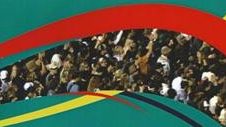CENSORING SCIENCE – A COMPARATIVE ANALYSIS OF TWO
EXAMPLES OF SCIENTIFIC CENSORSHIP AND THEIR
ETHICAL RAMIFICATIONS
Ben Dulken
Abstract: Censorship of science has been prevalent throughout the scientific and technological development of modern culture. Ever since Galileo’s conjecture that the earth revolves around the sun was rejected and censored by the Vatican church, issues of politics and religion have threatened scientific autonomy. Science, as defined by most prominent scholars and scientists, is the process of testing a hypothesis by implementing well defined techniques to acquire empirical evidence. True science is free of bias, opinion, or ideology, and, for the most part, modern scientists strive to achieve these ideals. Thus, science represents the purest manifestation of objective physical reality. Therefore, when a group or movement attempts to censor or silence science, it is not simply a rejection of a single individual’s opinion or ideology, but rather it is an assault on reality and the entire scientific method. Considering this argument, it seems that would be unethical to censor scientific findings under any circumstances. However, in the last 20 years there have been several instances of scientific censorship, and the motivations for these instances have been varied. This report will assess two examples of scientific censorship, the censorship of climate change findings and the censorship of avian bird flu research, and compare and contrast the motivations and methods of censorship pursued in each circumstance. The comparison of these two instances of censorship will facilitate an ethical analysis of the censorship of science and the circumstances in which it may or may not be acceptable.
Keywords: censorship, science, climate change, avian bird flu, ethical analysis
BEN DULKEN is a first year student at the Stanford School of Medicine. He graduated from the University of Washington with a degree in Bioengineering in 2012. While an undergraduate, Ben was involved in biomedical research in several laboratories studying a wide range of scientific disciplines. As an Amgen Scholar in the laboratory of Prof. Suzie Pun, he investigated a nanoparticle drug delivery system for the delivery of chemotherapeutic drugs to solid tumors. In 2011, he was awarded the Goldwater Scholarship and the Thomas Bardos Science Education Award for his work on the nanoparticle drug delivery system. He is currently pursuing an MD/PhD degree at Stanford University, and intends to obtain his PhD in neuroscience. When he is not in the lab or doing schoolwork, Ben enjoys cycling, skiing, hiking, and playing the piano.
